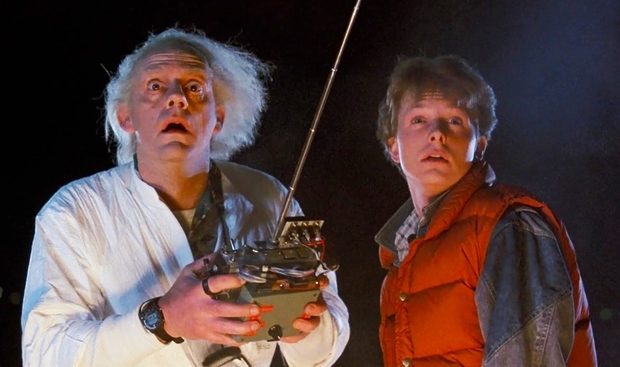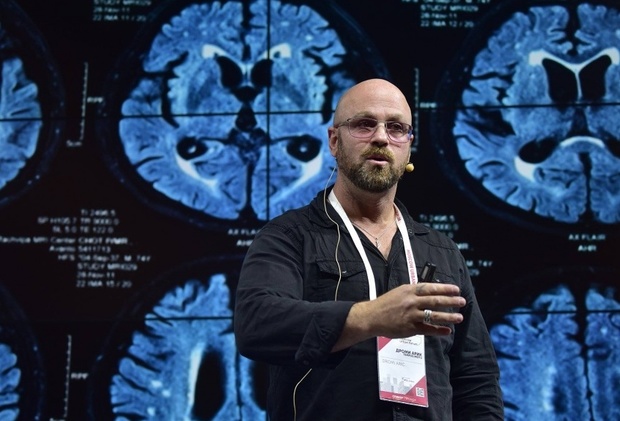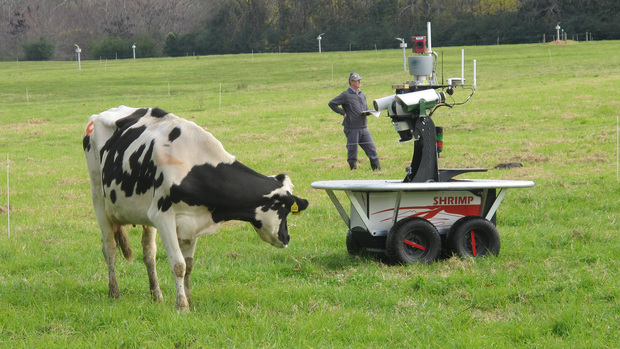Aric Dromi, Volvo Cars’ Futurologist: 'That's what I would like to see in schools — two hours a week failure'
You should learn how to fail, otherwise there will be no achievements or new discoveries, believes a futurologist of Volvo Car Company, a speaker of the upcoming business lecture of Realnoe Vremya Aric Dromi. On the threshold of his Kazan presentation, we found out why humanity can't get out of 'paper-based democracy', why the future belong to the alpha-digital and not to Generation Y, why a farmer — a profession of the future, and whether we will see the technologies of the Marty McFly 2015 version.
Futurologists do not predict the future — they tell stories
First, let's find out what is futurology and can it be called a science?
I think that futurology is a buzzword that people like me put on the titles (laughing). To be honest, I would say yes, it is a science.
You know, most people think that futurology predicts the future. I think they know it from Nostradamus to Baba Vanga. I'm not sure if I'm falling in that category but mainly what I do, as I define it for myself, — I look at data and try to analyze and study data. I try to understand different potentials, different impacts of that specific data. So, more of predicting, it's more like a navigating the future. That's the definition I like to keep.
Many Western companies employ a full-time futurologist, you are one of such examples – you work in Volvo. Could you tell us – how reasonable it is to use the services of futurologists for business?
That's a challenging question. I think whenever an organization wants to understand the various impacts, various elements within environment can have on the future using a storyteller. Because that's what we do – we tell stories. Can be extremely but official, but it has to be carried within the corporate culture, it has to have acceptance to corporate culture.
It's still hard to make an organization to understand you need to hear stories about potential futures.
Politics without imagination
Last year we 'celebrated' the arrival of Marty McFly from 'Back to the Fututre'. However, by now we have only invented self-lacing trainers, the NIKE Mag, and hover boards. How do you think how lagging the reality is in comparison with the futuristic ideas in the film?
I think that from technology perspective, from the promises part of technology – we are already there. I think it's a paper-based democracy, a paper-based politics that still is a little bit behind.

'It's not an issue of technology. It's just an issue of understanding of what is the economic value of that technology and, in many cases, what is the political value of that technology.' Photo: cinemotionlab.com
I often say that we are led by blind people who are blind to their blindness. It's an issue of putting aside politics and really concentrating on the benefits of society. It's not an issue of technology. It's just an issue of understanding of what is the economic value of that technology and, in many cases, what is the political value of that technology. But as long as we think the same way, there will be this gap.
But again, I often say that ten years from now we will be able to swallow a pill and your brain is going to be connected. And people ask: 'How can you know? How is that possible?' I say that these technologies we already have, it's here. 'Is it miniature?' 'No.' 'Is it connecting all of your brain?' 'No.'
But the promise of that technology is already there. You know, the politicians are mostly idiots. For me, when you are becoming a politician you are losing your imagination. That's what they miss.
How can we change it?
Slowly and painfully (laughing). Look, most of the politicians today are coming from the Silence generation, some of them are coming from the baby-boomers. I am supposed to be Generation X but I am putting myself out of that equation.
A lot of people are still talking about Y-Generation but let's be honest — they are 30-years old, they are completely irrelevant. Even the Milleniums are not the generation that was born into i-pad and so on. A new perception generation is going to come, which is my grandkids. I define them as Alfa-digital.
I think Darwin was right, the natural selection, natural evolution. Eventually, we live the physical politics behind and people start to immerse themselves in code. All the politics around us is irrelevant. My responsibility is to enable a platform for these people to write this code. I'm not going to see it but, at least, to start putting the seeds for that platform.

'Most people still talk about Y-Generation but let's be honest — they are 30-years old, they are completely irrelevant. Even the Milleniums are not the generation that was born into i-pad and so on.' Photo: mosurbanforum.com
That's how you change it by understanding that revolutions and wars do not really change anything in the physical world. You need to start focusing on the day after tomorrow. On the platforms that our grandkids and grand-grandkids can strive upon and really write this code to their future.
How do you think, in what direction should the IT companies and large businesses develop now?
I think IT companies have no right to exist anymore in this world. I think it's a way of taking money from people who understand even less.
Let's be honest, there's a list of 600 professions that are going to be irrelevant. Developers are ones of them. I think you need to rethink technology and the way technology is interacting with us in our real world.
If you come to me and tell me – we are a low-tech company, — that's does not apply anymore. Every company needs to have IT and hi-tech in state of mentality, as part of its culture, as part of the way it runs. IT organizations? No, I like to think that IT organizations today should stop exist. Instead of them we should have free departments – design and development, humanity management and self-organizations. AI, smart algorithms can easily do a lot of work that exit today. It's a very-very massive repurposing of the current structures in benefit of something that can really push progress.
A farmer is a profession of the future
In recent times, the talks about the professions of the future are very popular. You said that you will not allow your children to learn programming because it is a thing of the past. Could you name 5-10 professions that will be in demand in 10 years, in your opinion?
Again, predicting is extremely hard. I think a cognitive programmer is one of the interesting professions of the future. Everything that has relation to NLP is a profession of the future.
I think a farmer is profession of the future. Funny enough but we are proven ourselves as humanity being very lazy bastards. People don't want to be farmers today. But we can teach robots to be farmers. So I think, a farmer-educator, or a farmer-programmer is definitely is a profession of the future. It's extremely interesting one.
Unfortunately, banking is going to disappear any day soon. There should be new donors of banking system and I would call them digital bankers, they are going to be extremely important in the future just to understand what's the value of the things that are going to happen. These are some examples.
A lot of professions are fading away and we are giving them in favour of robots or algorithms. Suddenly we can rethink, we can repurpose our mind to discover new horizons of potentials that can make new professions for us. So I can't tell you definitely.
No, you know what, an alien life explorer is a profession of the future. Because you will have time to look for that in another planet.

'People don't want to be farmers today. But we can teach robots to be farmers. So I think, a farmer-educator, or a farmer-programmer is definitely is a profession of the future.' Photo: 42.tut.by
In one of you interviews, you said that Facebook is working on AI. And, most probably, they read the correspondence of their users. How do you think that approach is right? We should accept that or, following the example of Zuckerberg, to start covering the laptop cameras?
My laptop camera is usually covered but I think it's more a habit (laughing).
Look, it's an issue of value. I don't hide anything on Facebook. I don't believe the crab that Zuckerberg reads my correspondence or my messages with my friends, with my wife, with my kids. I care that he doesn't really understand it and he doesn't know how to translate that into value to me and that's where the problem starts.
Privacy literally never existed not online, not offline. Go to Russia, to Lenin and Stalin, it's not like they had Internet. Did they have privacy? No. It's the same way in any country that you put your finger on. It's really come to the value that you are going to get back form this type of exposure of your data.
I think the problem with company like Facebook, Google, is that, you know, people that established Silicon Valley literally valued the books. I think Zuckerberg, Larry, actually saw the movies instead of reading the books. And that's the difference.
On the positive side, I like this phrase that Facebook and Google are actually the legacy companies of the future. So, it's not up to them, it's up to us, how do we want to define our value. Once more and more people will understand that we can become our own AI and we will determine how much our value is actually worth. Facebook doesn't have other choice but to cope with that. Yes, they can still make millions on the top of my back, but I want value in return.
What do you think about robotics that are going to replace human beings? There are already serious talks about the robots that will write articles instead of the journalists.
Oh, it's called Narrative Science. Narrative Science is already writing a lot of articles for ESPN and Forbes. I do wish that robots will write algorithms to write speeches for politicians. I do wish that.
It's an issue of adaptation. We are already automating and relying on artificial neuro intelligence to create loud noises all across our life. We have a lot of research that have been done how an external skeleton can increase my capacity. You see, factories in Asia are actually letting their workers working with additional metal bobby to be able to carry more load. These things will become more and more. That's not something we can prevent.
And I think people are adapted more and more. From autonomous driving cars… We have flying robots today, it's called airplane. The plane is flying itself at the end of the day. That technology will come to all aspects of our life. And we have robots at home that washes the dishes, it's called a dishwasher. It exists how many years, right? But it's a robot. It's not doing by itself you need to tell it what to do but… We have a laundry machine, it's another type of robot.
They are going to become smarter. They are going to get arms, they are going to get legs, they are going to get eyes, they are going to get voice. This technology very much exist today.
I think it's an issue of the past and for me it's not looking at what the robots are capable of doing today, it's what we are capable of doing with robots tomorrow.
We should fail at least once a day
Is it true that the corporations deliberately hinder progress for marketing reasons?
It's very much depending on the corporations. I don't want to fall into the conspiracy theory… You know, organizations are used to the fact that what exists is true and should not be changed. It's not an organization itself, it's the thought fixation that is hindering progress. A lot of organizations really believe the things should be different but they don't want to change themselves.
That's the problem. It's not like 'let's try to make more money out of our users' because it's obvious that new technologies are making more money form their users. It's the thinking, organizational culture that are preventing these things from moving forward.

'I think it's about abandoning the examples that made us who we are and start paving a new way of moving forward. I think it's more an individual decision rather than of society but society consists of individuals.' Photo: facebook.com/aric.dromi
You said that traditional GDP is not relevant anymore. And it should be calculated the other way. What did you mean by that and how it should be calculated?
I am not an economist so I'm not gonna tell you what is the formula of calculating GDP. I like the approach which says that we are not calculating our citizens' happiness in GDP, which is true. We haven't utilized the digital interactions that happen all around us.
If you just look what happen one minute on Internet, that is not being part of any economic value of a company, or a city, or a country. My wife is from Bulgaria and I love Bulgaria. Plovdiv is the second largest city in Bulgaria. When you walk in Plovdiv, there are a lot of these art shops that are popped up all around. And there is a guy who is doing hand-made leather in his shop. He doesn't take credit cards, he takes only cash or sells on Etsy. The fact that he sells on Etsy is not part of Plovdiv GDP. You know, all these small thing that happen all around us. I've seen that twice, once in Russia, in Moscow, and once in Plovdiv.
In Moscow, we went to the underground, fantastic system. And there was the traditional babushka (a Russian old woman – editor's note), she comes and sits, 70-years old, with heavy basket, and with a Kindle! She starts reading a Kindle! That's digital life-style. We are not even looking at it. Because we do not have the way to measure it. Our entire economic system is in pre-digital, pre-computer age. We haven't progressed to understand what are the impacts. This what we need to rethink.
You also said that our generation is too trained for paper and routine work. Do you have any advice how to escape from it in the shortest time and to start to move forward?
I think it's about of abandoning the examples that made us who we are and start paving a new way of moving forward. I think it's more an individual decision rather than of a society but society consists of individuals.
It's the era of exploring new horizons of not being afraid of taking risks and trying up new things. It's the era of allowing yourself to do one thing a day and fail. Not succed in it. Try to fail. At least once a day. Because through failure you learn what is the right thing to do. But we are not raising our kids to fail, we are raising our kids to succeed. Look at the people that shaped he world, that people failed over and over and over again. That's that I would like to see in schools, I would like to get two hours a week failure.
Reference
Aric Dromi — a futurologist of Volvo Car Group and the founder of tempus.motu.